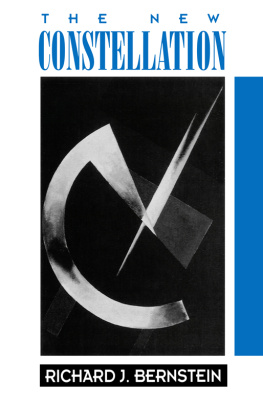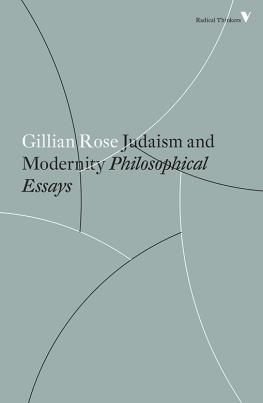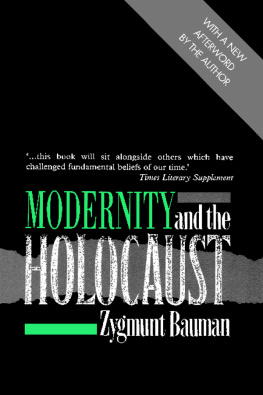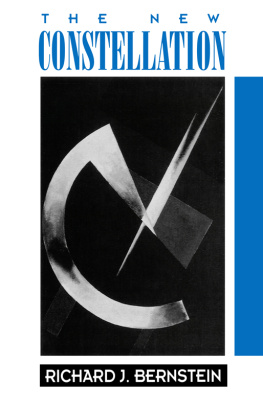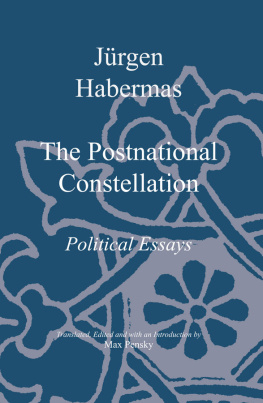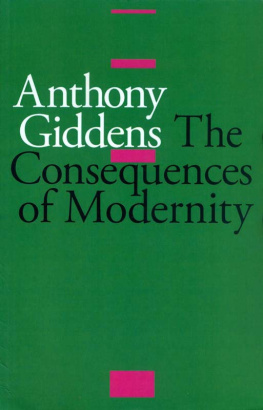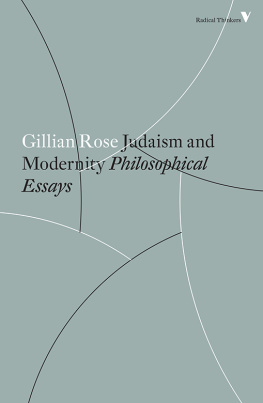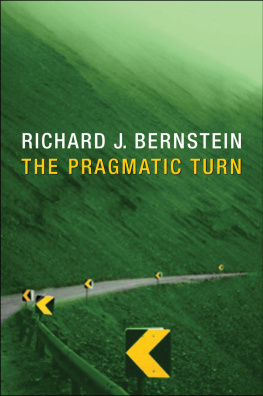For Paul and Rosemary
Copyright Richard Bernstein 1991
First published 1991 by Polity Press
in association with Blackwell Publishers Ltd
Reprinted 2005, 2007
Polity Press
65 Bridge Street
Cambridge CB2 1UR, UK
Polity Press
350 Main Street
Maiden, MA 02148, USA
All rights reserved. Except for the quotation of short passages for the purposes of criticism and review, no part of this publication may be reproduced, stored in a retrieval system, or transmitted, in any form or by any means, electronic, mechanical, photocopying, recording or otherwise, without the prior permission of the publisher.
Except in the United States of America, this book is sold subject to the condition that it shall not, by way of trade or otherwise, be lent, re-sold, hired out, or otherwise circulated without the publishers prior consent in any form of binding or cover other than that in which it is published and without a similar condition including this condition being imposed on the subsequent purchaser.
ISBN 978-0-7456-6567-2 (Single-user ebook)
A CIP catalogue record for this book is available from the British Library.
Typeset in 11 on 12.5 pt Baskerville 2
by Graphicraft Typesetters Ltd., Hong Kong
Printed and bound in Great Britain by
Marston Book Services Limited, Oxford
For further information on Polity, visit our website: www.polity.co.uk
Acknowledgments
The essays in this volume were written at three different institutions: Haverford College, Frankfurt University (where I was a visiting professor in the spring, 1988) and the Graduate Faculty of the New School for Social Research. I have been extremely fortunate to have had colleagues and students who challenged me at almost every point. The semester I taught at Frankfurt University was especially significant. In addition to teaching a seminar dealing with the themes of these essays, I also participated in a seminar with Jrgen Habermas and Karl-Otto Apel that dealt with modernity/postmodernity. Because we share so much in common, we could focus attention on our differences, especially our different readings and interpretations of Heidegger, Gadamer, Derrida, Foucault, and Rorty. Both Habermas and Apel are formidable opponents and our discussions were intense and productive. I want to acknowledge the gracious hospitality I received in Frankfurt and the intellectual stimulation of my students and colleagues.
The senior fellowship that I received (19856) from the National Endowment for Humanities provided the opportunity for the reading and meditating required for writing these essays. My research assistants at the New School, Eduardo Duarte, Rick Lee, and Aaron Garrett helped in numerous ways to prepare this manuscript. I have also been blessed with a cheerful, extremely efficient secretary, Claire Martin, who made sure that I had the time required to complete this book. The editors of Polity Press have been exemplary. John Thompson has been most gracious and efficient. Halina Boniszewska carefully supervized the production of this book. Penny Rendali is one of the best copy-editors with whom I have worked. As always, my wife Carol has been my best and most perceptive critic.
Philosophy, History, and Critique was originally published with the title History, Philosophy, and The Question of Relativism in At the Nexus of Philosophy and History, ed. Bernard P. Dauenhauer (Atlanta: University of Georgia Press, 1987). Earlier versions of The Rage Against Reason appeared in Philosophy and Literature, 10 (1986), and in Construction and Criticism, ed. Ernan McMullin (Notre Dame: University of Notre Dame Press, 1988). Incommensurability and Otherness Revisited was prepared for the Sixth East-West Philosophers Conference held in Hawaii in August, 1989. It will be published in the proceedings of the conference. Foucault: Critique as a Philosophic thos was published in Zwischenbetrachtungen, eds. A. Honneth, T. McCarthy, C. Offe, A. Wellmer (Frankfurt: Suhrkamp, 1989). Serious Play: The Ethical-Political Horizon of Jacques Derrida, was published in The Journal of Speculative Philosophy, 1 (1987). One Step Forward, Two Steps Backward: Rorty on Liberal Democracy and Philosophy, together with Rortys reply, Thugs and Theorists, appeared in Political Theory, 15 (1987). Rortys Liberal Utopia was published in Social Research, 57 (1990). Pragmatism, Pluralism, and the Healing of Wounds, is the presidential address delivered before the Eighty-fourth Annual Eastern Division Meeting of the American Philosophical Association in Washington, DC on December 29, 1988. It was published in the Proceedings and Addresses of the American Philosophical Association, 63 (1989). All of the above essays have been revised for publication in this volume. I want to acknowledge my gratitude to the editors and publishers for permission to reprint revised versions of these essays.
Introduction
Soon after the publication of Beyond Objectivism and Relativism (1983), a sympathetic critic wrote to me about the book. His comments were perceptive and incisive. But he concluded by abruptly asking: When are you going to take on Heidegger and the Trench? When are you going to confront the postmodern challenges and deconstruction of the philosophic orientation that you develop in the book? At first I was somewhat bemused by these questions. They were similar to questions I had been asked before. When I had published Praxis and Action (1971) and The Restructuring of Social and Political Theory (1976), there was always someone who asked why I had not also treated some theme, some problem or thinker that the reader took to be really central to my inquiry.
But my critics questions had a more pointed significance. In Beyond Objectivism and Relativism I claimed that
a new conversation is now emerging among philosophers a conversation about human rationality and as a result of this dialogue we are beginning to gain a new understanding of rationality that has important ramifications for both theoretical and practical life.
I also declared that
the contours of the conversation about human rationality, especially as it pertains to science, hermeneutics and praxis, have recently taken on a new and exciting shape. I want not only to reveal the common
The questions directed to me were a challenge to defend these shared assumptions, commitments, and insights. According to one reading of what has been called the postmodern moment, a rupture has occurred, a radical break that calls into question all philosophic projects. In an article written as a preparatory study for Beyond Objectivism and Relativism, I had even risked naming my critical philosophic orientation non-foundational pragmatic humanism. This label was deliberately provocative, especially the use of the signifier humanism. I wrote that
humanism has become something of a dirty word in recent times. It has been used by critics to identify everything that they think is wrong in the modern world In the new postmodern, poststructuralist Manichean theology, humanism seems to function as a name for the kingdom of Darkness . But it is more than a matter of perversity to hold on to this sign and not to abandon it in the face of such varied criticisms.
I was, of course, fully aware of the objections that Heideggerians and postmodern writers might raise. For had not Heidegger in his famous Letter on Humanism definitively shown us that humanism is nothing but a consequence of the metaphysical tradition that has its origins in Plato and reaches its culmination in Nietzsche, the last metaphysician? This metaphysical tradition is now over and needs to be overcome (berwinden). Had not Heidegger shown us that the

